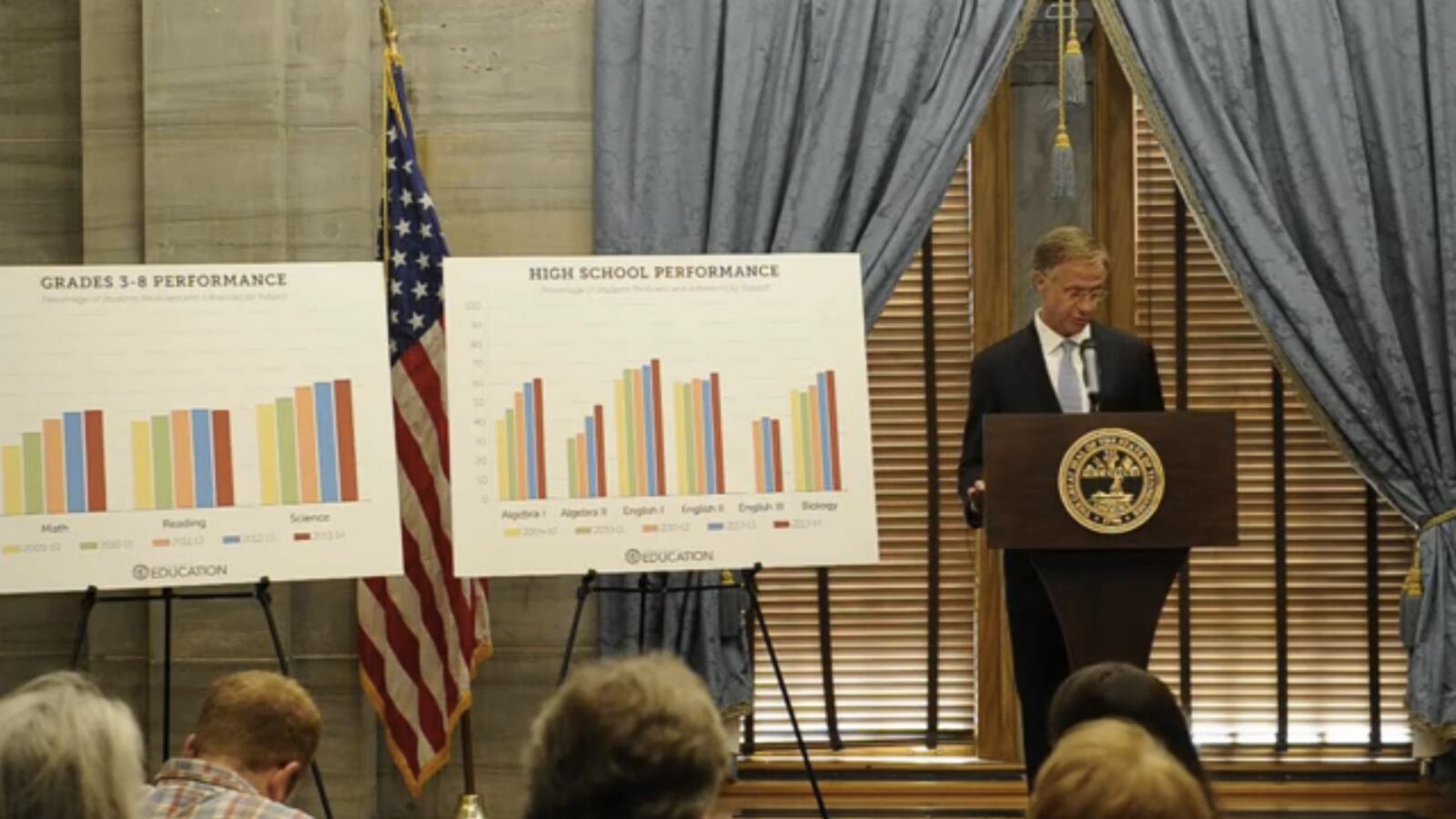Once chastised by the U.S. Chamber of Commerce for being among the nation’s most dishonest states when reporting student performance, Tennessee now is a leader in attempting to honestly assess its students’ academic proficiency, according to a report released Thursday.
The report, compiled by the Washington, D.C.-based advocacy organization Achieve Inc., analyzed the gap between student proficiency scores reported by individual states and those furnished by the National Assessment of Educational Progress (NAEP), a nationally normed test considered one of the most accurate measures of student performance.
The report’s authors said many states continue to post higher math and reading scores on state exams than achieved on NAEP exams, creating an “honesty gap” between what parents are told and how students actually perform.
Tennessee, however, is among eight states celebrated as a “top truth teller” for fourth-grade reading, with a gap of 15 percentage points between 2013-14 state proficiency levels and the state’s 2013 NAEP proficiency levels.
The report cited seven states with an even smaller gap, led by New York and Wisconsin. Georgia’s gap was the largest, at 60 percentage points.
For math, Tennessee’s honesty gap was 19 percentage points, the nation’s 19th smallest.
Overall, more than half of states had gaps of more than 30 percentage points, the report said.
Gov. Bill Haslam said making state test results more reflective of students’ skills is key to improving outcomes, even when the reflection isn’t as good as people would hope.
Speaking during a telephone news conference organized through the Collaborative for Student Success, a pro-Common Core advocacy group, the governor recalled that Tennessee reported a decade ago that more than 90 percent of its students tested on grade level in math and science, although its NAEP scores were much lower. In addition, 70 percent of Tennessee students who continued on to community college had to take remedial courses.
“There’s no way that you can have 90 percent of your kids be at grade level and, in community college, 70 percent need remedial work,” Haslam said. “If you’re not being honest about how you’re performing with kids, it’s an incredible disservice to your citizens.”
Haslam and leaders within the Tennessee Department of Education have warned that test scores likely will go down next school year with the rollout of TNReady, the state’s new, more challenging assessment. The change likely shrinking the gap further.
The report highlighted fourth-grade reading and eighth-grade math because “it is essential to learn to read by 4th grade to be able to read to learn moving forward, and 8th grade math proficiency indicates that a student is prepared for higher-level math in high school,” the authors said.
Leaders of the Washington, D.C.-based Collaborative for Student Success hailed the report for encouraging states to be more transparent in reporting test scores.
“The ‘Honesty Gap’ is the result of a lack of political courage from some policymakers who are afraid to come clean to parents about the fact that our students are not prepared for college or the workforce,” said Karen Nussle, the group’s executive director, in a news release.
“The good news is that many states are and have been working to address this gap by adopting higher, comparable standards and implementing high quality tests to measure student progress and give parents real information.”
The results of Tennessee students’ most recent NAEP exams will be released in November. The test, which was taken last January in a random sampling of schools, is administered every other year by the National Center for Education Statistics.
Contact Grace Tatter at gtatter@chalkbeat.org.
Follow us on Twitter: @GraceTatter, @chalkbeattn.
Like us on Facebook.
Sign up for our newsletter for regular updates on Tennessee education news.


